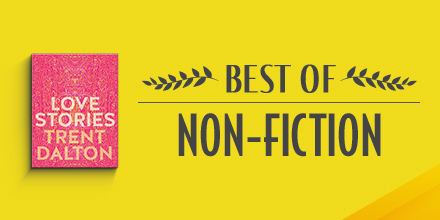In a time when it often seems as if we’re drowning in essays – personal, long-form, investigative, what have you – it’s always a delight to discover a writer who can show the genre at its very best. That’s how I felt after reading How Do We Know We’re Doing it Right?, a new collection of essays by the British writer and broadcaster Pandora Sykes. Rather than a meandering selection of ruminations on millennial angst, the essays here are meaty, precise, and deeply fascinating, tackling some of the most pressing issues facing young women in 2020.
From the wellness fads espoused by Gwyneth Paltrow and co. to the culture of millennial ‘burnout’, the eight essays in Sykes’ collection provide more than enough material to munch on as they dissect the intricacies of modern life. My particular favourite is one that examines the ethics of fast fashion consumption in the 21st century. In it, Sykes reckons with the current global appetite for novelty in fashion and the forces of culture and capital that feed it. She cleverly unpicks our taste for shopping to reveal its wider implications, while also contemplating her own past role as a fashion commentator and journalist in perpetuating the fast fashion consumption cycle. Certainly Sykes is not the first writer to tackle such a subject, but her angle is more anthropological in its scope, examining exactly why it is that we feel culturally compelled to purchase that dress worn by that celebrity or influencer after merely scrolling through our Instagram feed. It’s reflective of the essay collection at large, which proves Pandora Sykes to be a writer of valuable insight.
Her writing is measured and thoughtful, threaded with moments of wry self-reflection that add warmth and colour to the collection as a whole. Refreshingly, Sykes is also unafraid to turn the spotlight onto herself and examine how her own behaviour fits into the cultural phenomenons she is describing. There is an acute sense of self-awareness in her writing – she can articulate the ways in which her own privilege shapes her critical perspective, as well as how our culture suppresses the advantages that others might enjoy were it not for their race, gender, sexuality and so on. In doing so, Sykes is able to explore the multiple and even contradictory facets of an issue without equivocation or resorting to generic statements about youth, or womanhood or culture – a real relief, given our tendency to package up complex issues into bite-sized, easily digestible platitudes.
With How Do We Know We’re Doing It Right?, Pandora Sykes has pulled off the considerable feat of being able to speak to millennial women without falling into the relatability trap that many often do (i.e. you won’t find any eye-twitching, smug ‘amiright ladies?’ moments here). Instead, Sykes presents us with an essay collection that is unique in its perspective and which expresses her thoughts with remarkable sensitivity. If you enjoyed Trick Mirror by the excellent Jia Tolentino, you’ll find plenty to love here too.
—How Do We Know We’re Doing It Right? by Pandora Sykes (Penguin Books Australia) is out now.

How Do We Know We're Doing It Right?
Essays on Modern Life
Modern life is full of choices. We’re told that happiness lies within and we can be whoever we want to be. But with endless possibility comes a feeling of restlessness; like we’re somehow failing to live our best life. What does doing it right even look like? And why do so many women feel like they’re getting it wrong?
From faster-than-fast fashion to millennial burnout, the explosion of wellness to the rise of cancel culture, Pandora Sykes interrogates the stories we’ve been sold and...
About the Contributor
Olivia Fricot
Olivia Fricot (she/her) is Booktopia's Senior Content Producer and editor of the Booktopian blog. She has too many plants and not enough bookshelves, and you can usually find her reading, baking, or talking to said plants. She is pro-Oxford comma.
Follow Olivia: Twitter







 How to ace your exams this semester
How to ace your exams this semester  Ten Terrifying Questions with Eda Gunaydin!
Ten Terrifying Questions with Eda Gunaydin!  The Best Books of 2021: Non-Fiction
The Best Books of 2021: Non-Fiction
Comments
No comments